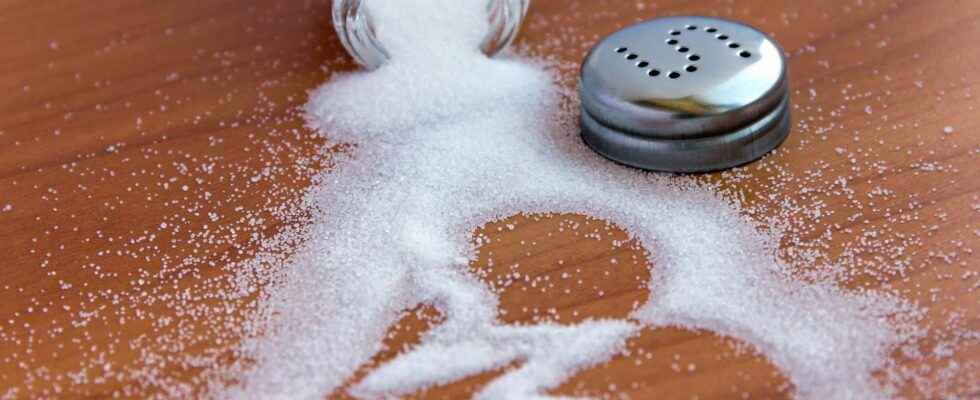In the hypothalamus, a deep structure of the brain, excess salt in the blood decreases blood flow. This is the astonishing conclusion of a research group from the University of Georgia.
You will also be interested
[EN VIDÉO] 3D brain made with 3D MR imaging Using the new 3D MRI software, a 3D animation can be created from an MRI image. The vivid detail of these animated amplified movements can help identify abnormalities, such as those caused by blockages of spinal fluids, including blood and cerebrospinal fluid in the brain.
When the neurons are active in our brain, they need glucose, the fuel of our cells, and oxygen. Both are transported by the blood and to ensure a supply to match the demand for neurons, a set of biological mechanisms is put in place and increases the debit blood. The phenomenon has been observed in the cerebral cortex, the outermost layer of the brain that we also call matter grey. Researchers from the University of Georgia (United States) are interested in the same phenomenon, but in a deeper structure, thehypothalamus. And what they observed is rather surprising.
In the hypothalamus, salt reduces blood flow
Let’s look into the supraoptic nucleus of the hypothalamus. This brain region harbors neurons whose main activity is the secretion vasopressin, a hormone antidiuretic important in the control of blood salt concentration. If the increased blood flow around neurons promotes their activity, then an excess of blood salt should be linked to the increased blood flow to nourish the neurons which activate to eliminate this anomaly.
Scientists have observed the opposite phenomenon. In the supraoptic nucleus of the hypothalamus, too much salt in the blood causes vasodilatation and significantly decreases its flow, to such an extent that locally, the cells are deprived of oxygen (hypoxia). ” When we eat very salty, the levels of sodium in the body remain high for a long time. We believe that hypoxia is a mechanism that enhances the ability of neurons to respond to continuous saline stimulation, allowing them to remain active over a long period of time. », Explains Javier E. Stern, neuroscientist and director of this research. These results raise interesting questions about hypertension which, in a significant number of cases, is due to a diet too high in salt.
Interested in what you just read?
.
fs6
